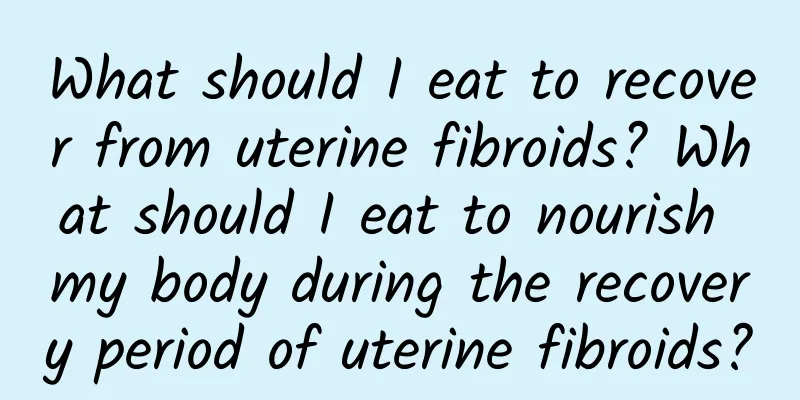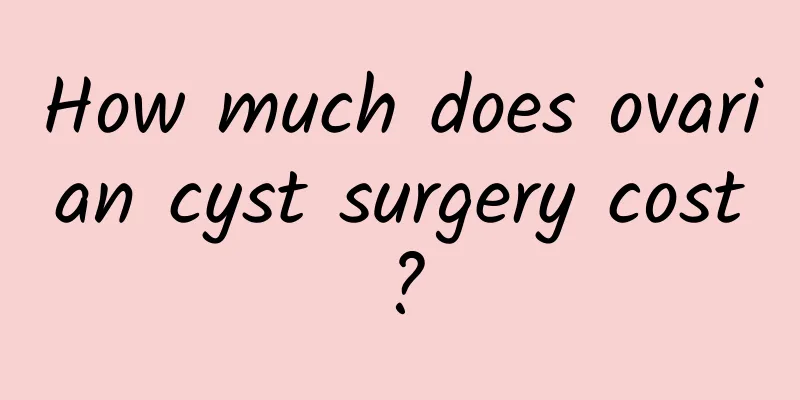Symptoms of pregnancy complicated with uterine fibroids What are pregnancy complicated with uterine fibroids

|
Uterine fibroids are one of the most common benign tumors in the female reproductive organs and one of the most common tumors in the human body. They are also called fibroids and uterine fibroids. Because uterine fibroids are mainly composed of the proliferation of uterine smooth muscle cells and a small amount of fibrous connective tissue exists as supporting tissue, they are more accurately called uterine leiomyoma. Uterine fibroids. So what are the symptoms of pregnancy complicated by uterine fibroids? Pregnancy complicated with uterine fibroids can cause abdominal pain and uterine fibroids. During pregnancy, uterine fibroids grow rapidly and are prone to red degeneration and severe abdominal pain. Generally speaking, uterine fibroids do not cause pain, but many patients may feel lower abdominal swelling and back pain. When the pedicle of the subserosal fibroids is twisted or the uterine fibroids undergo red degeneration, acute abdominal pain may occur. Endometriosis or adenomyosis may cause dysmenorrhea. Uterine fibroids grow rapidly during pregnancy and are prone to degeneration. Late pregnancy is complicated by malposition of the fetus. During delivery, fibroids often affect uterine contractions, which can lead to prolonged labor or delayed delivery. When fibroids grow in the lower uterine segment, they can hinder the descent of the fetus, leading to dystocia and postpartum hemorrhage. However, if the fibroids undergo degeneration during pregnancy, especially red degeneration, acute abdominal pain or the fibroids are located low, affecting the descent of the fetus, in this case, a cesarean section is required, and the removal of the fibroids or hysterectomy is decided according to the specific circumstances. In short, when uterine fibroids are combined with pregnancy, although most pregnant women can go through pregnancy and delivery smoothly, some pregnant women are prone to complications. Therefore, women with fibroids should go to the hospital for examination in time after pregnancy, and have prenatal examinations and follow-up on time. If the fibroids grow in the upper part of the uterus, do not affect delivery, and have no symptoms and changes during pregnancy, further examination and treatment can be performed after delivery. |
Recommend
Haven't you heard of it? Liquid Christmas meal is only 300 calories!
Christmas is here! Christmas parties are full of ...
How to prevent irregular menstruation? There are 4 common ways to prevent irregular menstruation.
Menstruation is an important physiological charac...
What is immune recurrent miscarriage? Let's take a look at it together.
Immune recurrent miscarriage refers to autoimmune...
What are the precautions for drug treatment of uterine fibroids
Medication is a commonly used method for treating...
What can I eat to improve pelvic effusion?
Generally speaking, physiological pelvic effusion...
My period came one week early and I have a little bleeding. What should I do?
My period came one week early and I have a little...
To prevent cervical hypertrophy, you must choose the right method
The appearance of cervical hypertrophy will have ...
Three Chinese medicine treatments for ovulatory dysfunctional uterine bleeding
The main cause of ovulation bleeding is the ruptu...
Is it life-threatening to have an abortion for a scarred uterus? Will I get pregnant?
There are certain risks in performing abortion on...
What are the dangers of premature ovarian failure? How to prevent premature ovarian failure?
The ovaries are important endocrine organs in wom...
Paying attention to the cause of vaginitis can help women prevent this disease
The occurrence of vaginitis will have a serious i...
6 signs of menopause in women
Women usually experience some obvious signs befor...
Are ovarian cysts and uterine fibroids the same disease? What are their characteristics?
Are ovarian cysts and uterine fibroids the same d...
Which hospital is good for treating uterine effusion?
Which hospital is good for treating uterine effus...
Common and easily identifiable manifestations of vaginitis
Although vaginitis is a common gynecological dise...









